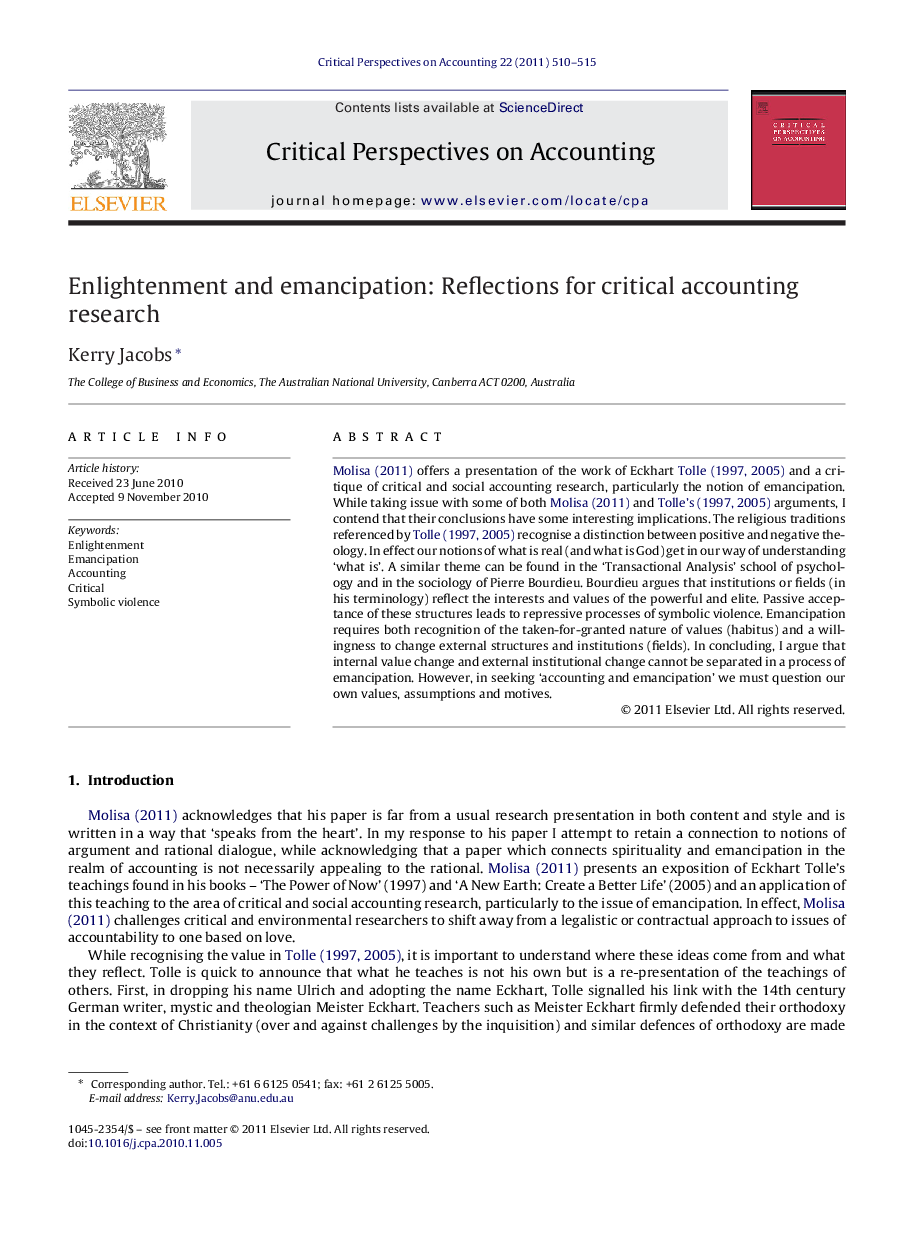| کد مقاله | کد نشریه | سال انتشار | مقاله انگلیسی | نسخه تمام متن |
|---|---|---|---|---|
| 1000872 | 937076 | 2011 | 6 صفحه PDF | دانلود رایگان |

Molisa (2011) offers a presentation of the work of Eckhart Tolle, 1997 and Tolle, 2005 and a critique of critical and social accounting research, particularly the notion of emancipation. While taking issue with some of both Molisa (2011) and Tolle, 1997 and Tolle, 2005 arguments, I contend that their conclusions have some interesting implications. The religious traditions referenced by Tolle, 1997 and Tolle, 2005 recognise a distinction between positive and negative theology. In effect our notions of what is real (and what is God) get in our way of understanding ‘what is’. A similar theme can be found in the ‘Transactional Analysis’ school of psychology and in the sociology of Pierre Bourdieu. Bourdieu argues that institutions or fields (in his terminology) reflect the interests and values of the powerful and elite. Passive acceptance of these structures leads to repressive processes of symbolic violence. Emancipation requires both recognition of the taken-for-granted nature of values (habitus) and a willingness to change external structures and institutions (fields). In concluding, I argue that internal value change and external institutional change cannot be separated in a process of emancipation. However, in seeking ‘accounting and emancipation’ we must question our own values, assumptions and motives.
Journal: Critical Perspectives on Accounting - Volume 22, Issue 5, July 2011, Pages 510–515